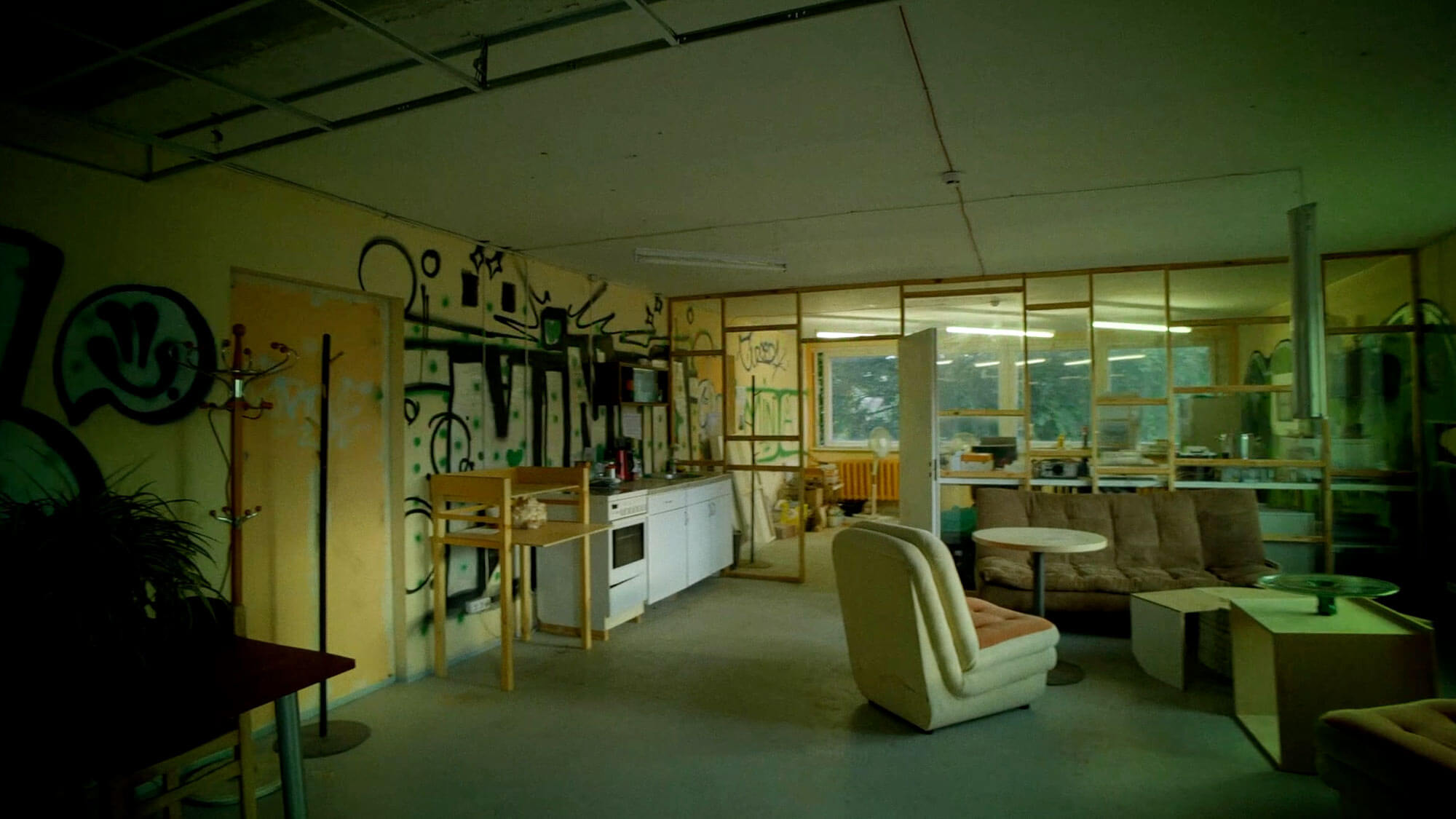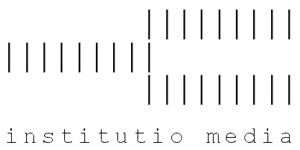Alt Lab Tutorial Series are about instructions on how to make an art project or conduct a science experiment. The ideas presented here will provoke new ideas and provide a methodology for implementing them.
Alt lab fills the gap between the raised awareness of environmental changes and the Anthropocene, artistic practices, scientific experiments, and daily habits around our kitchens. People in the lab share their knowledge and de-mystify scientific experiments and sophisticated artistic mythos.
Alt Lab Tutorial Series are developed by friends of the Alt Lab, a non-disciplinary research laboratory at Institutio Media. Members of the lab are looking for unique solutions to implement their ideas.
Exhibition
-
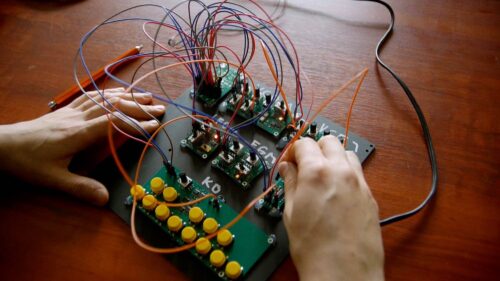
Analog Sound Synthesis Fundamentals and Experimentation
Gabrielius Klemas (LT)
The tutorial introduces the essential elements of analog modular synthesis and shows how to connect the modules. The aim is to learn how analog synthesis works sounds and how to think about signals. A signal is not just a natural phenomenon, it is a tool that allows us to create.
-
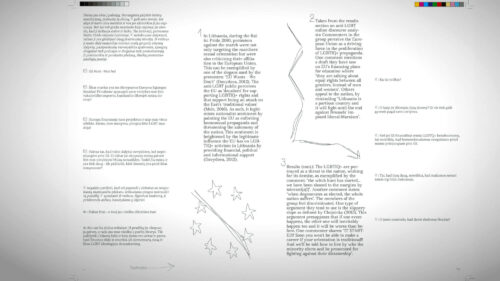
Conversations on (counter)narratives
Gabija Bubnytė (LT)
The tutorial reflects on different words found in anti-LGBT discourse, as well as on the current hostile environment for the LGBTIQ+ community in Lithuania.
-

Extraction of DNA and chlorophyll from plant cells
Vincenta Mikulėnaite (LT), Kristina Zakutauskaite (LT)
Are you fascinated by the hidden mysteries within plant cells? The tutorial unleashes curiosity by exploring the fundamental essential units of plant’s life – DNA – the molecule that caries genetic instructions for the functioning of an organism and chlorophyll.
-

Kombucha bacterial cellulose biotextile growing and application
Jolanta Sendaitė-Paulauskienė (LT)
This tutorial invites humans to explore the connection with the other life forms through bio-fabric – bacterial cellulose that grows during the natural fermentation process of a kombucha drink.
-
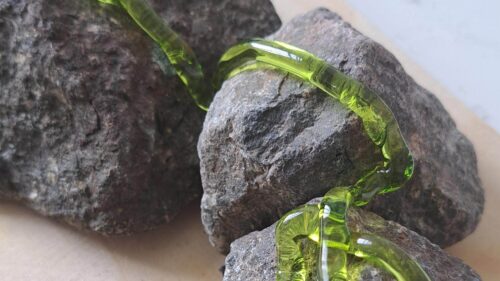
Lakus
Brigita Kasperaitė (LT)
Lakus in the Lithuanian language stands for rapidly evaporating. Glass and stone are both the same material, only one is a previous version of it. Here, they meet in the individually shaped forms: one that is given and formed over years and another that is forced by a destructive tool, fire.
-
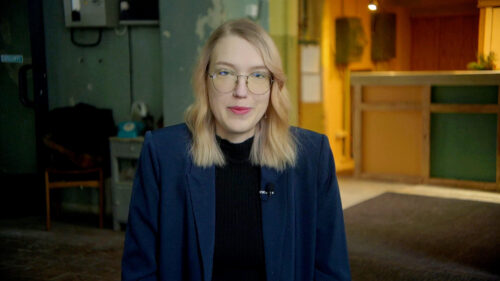
Microalgae – Microcosmos
Lolita Tučinskaitė (LT)
The tutorial invites one to get to know the complex world of microalgae better. It gives a closer look and examines these organisms through a microscope, reflects on their global significance for the planet and their possible use in art.
-
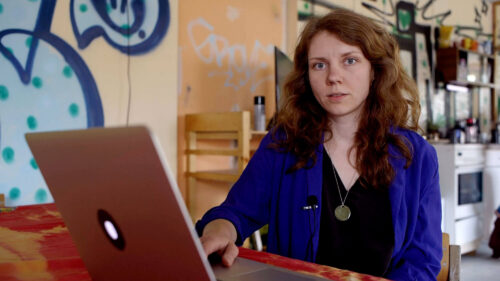
Nature networks
Liucija Dervinytė (LT)
This tutorial is part of an ongoing embroidery project, in which participants are invited to join a collective creative process by stitching a mark in a shared story, on a large piece of fabric.
-
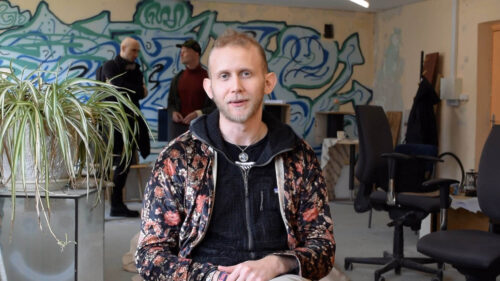
Technodelic Meditation
Linas Tamošaitis (LT/DK)
The tutorial invites one to use technology to delve into the unconscious and discuss the role of technology in therapy and psychological health. It introduces the use of technology for meditation while using virtual reality devices as well as cellphones.
-

Winogradsky Column
Kira O’Reilly (IE/FI)
The tutorial invites one to create Winogradsky columns using water and soil combined with other materials, from a water source nearby SODAS 2123. As we get our hands wet and muddy, we talk about the environments and ecosystems we are part of, both physically and temporally, and the degree of our influence.
-
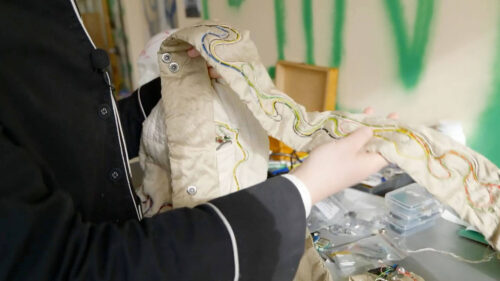
You and I, You and Me
Mindaugas Gapševičius (LT/DE), Maria Safronova Wahlström (SE)
The video tutorial invites one to explore the possibilities of communication through electricity. The project proposes that electricity could help to reveal the imperceptible connections between different actors within the environment.
Workshops
-
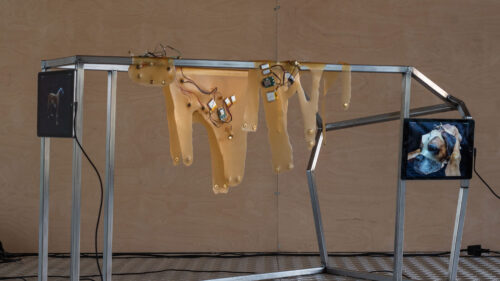
Interfaces for Boris and Mindaugas
Mindaugas Gapševičius (LT/DE)
The installation Interfaces for Boris and Mindaugas provides interfaces for the boxer dog Boris and his host, so that the host experiences how the dog behaves, and the dog experiences the behavior of his host.
-

Non-Traditional Gung Fu Brewing as Tool in Artistic Biotechnology
Jan Glöckner (DE/LT)
The tutorial explores tea drinking as the mental and bodily primer to compose and dance with fungi. Jan Glöckner shares their research and practice using biotechnology in their practice-led research.
-
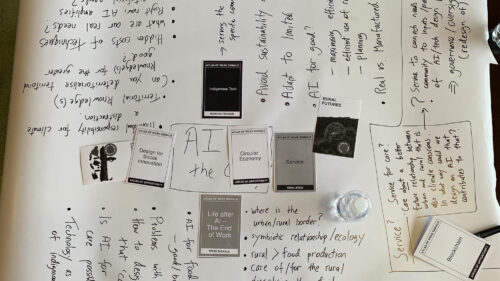
Towards a Toolkit of Care
Marinos Koutsomichalis (GR), Mindaugas Gapševičius (LT/DE), Alessandro Ludovico (IT), Josefin Lindebrink (SE), Valeria Graziano (HR), Jenny Pickett (FR), Alexia Achilleos (CY), Eric Lewis (US/CA)
A “critical network of care” acts as a model of how to successfully share knowledge and expertise across different geographical regions and social groups. The group presents the current state in research towards the formulation of a TOOLKIT OF CARE.
About
Institutio Media is a non-disciplinary art research organization. It was designed in 1998 as an attempt to transfer an academic institution to the internet and study its potentialities in the Web. The aims of Institutio Media are: encouraging creative experimentation, expanding artistic research and developing a platform for testing the ideas. In 2019 Institutio set up a biolab for non-disciplinary research, providing an environment for experimentation and exchange at different levels.
Credits
The project is supported by the Lithuanian Council for Culture, the Lithuanian Interdisciplinary Artists‘ Association and the Nordic Culture Point.
Special thanks to: Kristina Tūla, Liucija Dervinytė, Gvidas Bindokas.
